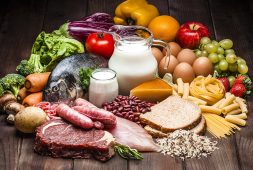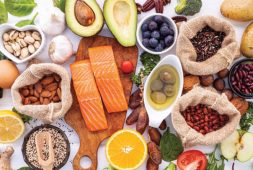
You don’t need to be a health enthusiast to have heard the term “clean eating,” or possibly even have an idea of what it means. But what many might not realize is that clean eating isn’t actually a straight forward concept after all. Although it does generally refer to people having better and healthier diets overall, there are some studies that show that certain misconceptions about this topic could even lead to possible risks and adverse benefits.
People tend to look to magazine articles, food blog influencers, and other social media influencers for information when promoting the idea of clean eating. Moreover, they all usually claim to have amazing benefits like improved energy, weight loss, and radiant skin.
The basic idea behind clean eating involves consuming natural, nutrient-dense foods, and avoiding refined and processed foods.
While choosing to eat “clean” or having that type of approach to eating can help with weight management and one’s overall healthy lifestyle, certain translations of clean eating can actually result in detrimental consequences.
Here, we will dissect what cleaning is, along with the potential benefits and risks, while looking at recent research that looks at clean eating.
What Exactly Is Clean Eating?
Clean eating is a food revolution that’s grown rather quickly over the past decade or so. Although there is no actual or clear definition for the term “clean eating,” people feel that committing to this type of lifestyle will lead to weight loss and getting healthier overall.
“Clean eating” could be described mostly by individuals choosing foods that are considered wholesome and natural. This generally means types of foods that are free from preservatives, additives, and processed and refined ingredients.
While the term itself probably came forward with good intentions, the umbrella meaning and lack of clarity surrounding the topic allows it to be very open to interpretation rather than having strict or particular rules to follow. This also means some can take the meaning or basis too far from what it’s truly meant to be.
How this happens is when someone chooses to follow a much less restrictive approach to the topic rather than following a clean eating pattern that’s similar to those outlined in the Dietary Guidelines for Americans, such as consuming vegetables, high-quality proteins, whole fruits, vegetables and lessening any processed foods.
But, some might believe that clean eating means being much more restrictive, eliminating certain foods like gluten, dairy, and sugar. They could also lessen the number of food ingredients in their meals, while also avoiding other foods that have been chemically treated using pesticides, antibiotics, and growth hormones.
What Do The Studies Say?
As for one study published in the Nutrients journal, it looked at the perceptions of clean eating in ‘a large, diverse sample of adolescents and emerging adults in the United States.’
While definitions of clean eating were mixed among the participants, most of the people that were surveyed categorized “clean eating” as ‘consuming whole or unprocessed foods, including raw foods, natural foods, and foods without artificial flavoring or additives.’
From the participants that were surveyed, the results showed that 70.8% of them identified clean eating as healthy. On the other hand, 18% of them identified both harmful and beneficial elements, which means that the term “clean eating” could cause confused or disordered eating patterns.
Meanwhile, another study published also in Nutrients, took a look at 762 Australian women between the ages of 17 to 55 years. They were asked to complete a self-report questionnaire on eating behaviors and beliefs based on websites about clean eating.
The study found that for women who followed dietary advice from clean eating sites ‘were more likely to meet dietary guidelines for fruit, meat, and meat alternatives – such as legumes, eggs, nuts, and seeds – compared to women who did not adhere to advice from the sites.’
But it was also found that there were no statistical differences in dairy, grains, vegetables, or discretionary foods amongst the different groups.
Yet, the study found that there was more dietary restraint in those that followed dietary advice from such sites, which also shows that there’s a chance for obsessive eating patterns. Although what wasn’t found was whether the advice that was given was from a credible source or if it was actually advice followed from evidence-based guidelines.
In addition, another study was published in the Journal of Eating Disorders, which saw that “clean eating” is looked at favorably by most U.S.-based college students, even when it’s associated with emotional distress.
The outcome of all the studies mentioned still show that more extensive research is needed to clarify the possible risks and benefits of true clean eating.
What Are the Potential Benefits of Clean Eating?
For those that would like to follow clean eating, it could be beneficial in some ways, such as lessening the intake of sodium, ultra-processed foods, and sugary beverages.
Another version of clean eating is one that includes a nutrient-dense diet, which means it’s filled with fruits, vegetables, nuts, whole grains, and healthy protein, all ingredients that can adequately nourish the body, while also supporting one’s weight management and overall health.
Although there are no scientific studies that link clean eating with health benefits, ‘there is research to associate difficulties in eating a balanced diet, typically avoided by clean eaters, with chronic disease.’
One example of this was one large study that was published in The BMJ, which found that consuming 10% more ultra-processed foods actually increase the risk of coronary heart disease, cardiovascular disease, and cerebrovascular disease by at least 10%.
In this study, the ultra-processed foods included reconstituted meat products, frozen dinners, and savory snacks.
In addition, the Centers for Disease Control and Prevention (CDC) found that for those attempting to follow a balanced diet had a difficult time removing the excess consumption of sugary beverages, processed foods, and sodium, all of which can increase of risk of chronic disease.
What Are the Potential Risks of Clean Eating?
Some research suggests that clean eating could also result in individual’s food restriction, all of which could result in nutrient deficiencies and loss of social relationships. Moreover, it can also lead to mental distress.
The lack of clarity that surrounds the clean eating movement and the dietary recommendations can result in people choosing to categorize particular foods as “bad” while classifying other foods as “good” without providing strong evidence to support this type of labeling.
Because of this, it puts pressure on individuals in their choices of eating a certain way, which can also lead to a unhealthy obsession with “healthy” eating.
The National Eating Disorder Association compares clean eating to dieting, which can increase the risk of orthorexia nervosa (ON), which is when someone strictly avoids foods that they believe unhealthy. These types of foods can also include processed foods, additives, and nonorganic foods.
Notably, the Diagnostic and Statistical Manual of Mental Disorders, 5th edition, doesn’t recognize orthorexia as a separate eating disorder. But many researchers believe that ON should actually fall under the Avoidant/Restrictive Food Intake Disorder umbrella.
Another important point is that there is also a difference between dietary restrictions and orthorexia. Although some people choose to avoid certain foods because of religious, ethical, or health-related reasons, people with orthorexia actually have obsessive thoughts about their eating habits.
It’s important to note that when someone chooses grilled chicken over fried chicken, or spaghetti squash over regular pasta, this doesn’t qualify as clean eating going too far.
For as long as someone’s dietary pattern includes food from all different food groups, there shouldn’t be a major cause for concern. It’s important for people to note that following a healthy, balanced diet is the best approach regardless of the type of dietary pattern that person follows.
It’s Important to Eat a Healthy Diet
Although having an obsession with clean or “healthy” eating isn’t also healthy for the body or mind, it is important to consume a health, nutrient-dense diet. There are also ways to find ‘a healthy balance between clean eating and eating healthy without fear or restriction.’
For instance, while a nutritious diet can include canned and frozen produce, when choosing frozen or canned foods, make sure to check the labels to avoid any added sugar, sodium, and syrups.
While it’s a misconception that all processed foods are not necessarily bad, or do they need to be completely eliminated, most of the foods sold in store are processed to some extent as well.
In order to make sure that all nutrient needs are met, it’s important to follow evidence-based food and beverage recommendations such as those that are outlined in the 2020-2025 Dietary Guidelines for Americans. These guidelines share that the diet of a nutritious adult should include the following:
- fruits, with an emphasis on whole fruit
- grains, with at least half being whole grains
- vegetables of all types and colors
- diary, including low fat or fat-free milk and cheese or lactose-free versions
- protein foods, including lean meats, poultry, eggs, seafood, nuts, seeds, soy products, beans, peas, and lentils
- oils, including vegetable oils and oils in foods such as nuts
These guidelines also suggest that there should be a limit to added sugars, sodium, saturated fat and alcoholic beverages as well.
In Conclusion
With the definition of “clean eating” changing from person to person, there is no complete research that proves that it has more benefits than any other dietary pattern. In addition, while some might follow a clean eating pattern, which allows for moderation leading to great success, others have a higher risk of being more vulnerable to having eating disorders.
Individuals that have an adverse obsession with restricting certain types of foods or food groups, they can put themselves at a risk for malnutrition, overall mental distress, and social isolation.
It also shows that the existence of nonqualified people giving faulty or wrong advice on clean eating can also put people at a further risk for eventually developing chaotic eating patterns.
With all of these things in mind, it’s important to make sure to speak to a registered dietitian, or otherwise qualified nutrition professional, to get the proper information and to ask any questions you may have about clean eating.



